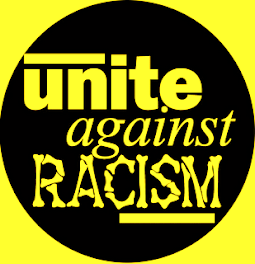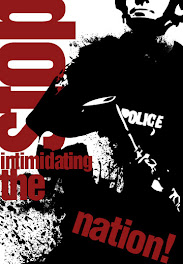 1MALAYSIA, 1BEER
1MALAYSIA, 1BEER MALAYSIA OFFERS BEER DRINKERS A WARM WELCOME
MALAYSIA OFFERS BEER DRINKERS A WARM WELCOME!!
 Caned for beer, not canned beer in Malaysia!
Caned for beer, not canned beer in Malaysia!
Picture source China Daily.com HERE
To read the report from the BBC (Click HERE) & from CNN (Click HERE) regarding the sentence of six strokes of the cane, in addition to a heavy fine, being delayed for a lady accused of drinking beer in the increasingly strict, extreme and ever more intolerant Islamic State Malaysia.
and read the news in the Star Malaysia HERE
This case has resulted in much comment, many questions and many different points of view have been expressed, but the answer to them all is very simple "BEER"!

but "What was the question?
Ergo bibamus - Therefore, let us drink!
Beer has a long history - the ancient Egyptians and Babylonians brewed a beer-like drink, and in the Middle Ages it was the most common beverage in European towns and cities. Water was unfit to drink!
The word "beer" originally meant simply "The Drink" (it probably derives from Latin bibere, to drink).
In other languages the word for beer points at the bitterness of the drink, the barley from which it is brewed, or the feasts with which it was associated.
Modern, western type beer containing hops was first brewed in Bavarian monasteries in the 7th century. Through the centuries it has followed the routes of trade, culture and colonialism. The French borrowed the words bière, mannequin and boulevard from 15th century Dutch, whereas the Spaniards brought the old Gaulish word for beer to the speakers of Tagalog (Philippines) and Quechua, the Inca language of Peru.
The list below contains the word 'beer' in 78 languages, ranging in the number of those who speak them from Chinese to Manx, the revived Celtic language of the Isle of Man. Several invented / constructed languages such as Esperanto, are also included.
| Language | Word(s) |
|---|
| Afrikaans | bier |
| Albanian | birrë |
| Arabic | beereh (biræ) |
| Azerbaijani | pivo |
| Basque | garagardoa |
| Belorussian | piva |
| Bengali | beer |
| Breton | bier |
| Bulgarian | bira |
| Catalan | cervesa |
| Chechenian | jij |
| Chinese (Mandarin) | pi jiu |
| Croatian | pivo |
| Czech | pivo |
| Danish | øl |
| Dutch | bier |
| English | beer, ale |
| Esperanto | biero |
| Estonian | õlu |
| Faeroese | øl, bjór |
| Finnish | olut, kalja |
| Flemish | bier |
| French | bière |
| Frisian | bier |
| Gaelic (Scotland) | leann (lionn), beòir |
| Galician (Galego) | cerveja / cervexa |
| German (High) | Bier |
| German (Low) | Beer |
| Greek | mpíra (bira), zýthos |
| Hawaiian | pia |
| Hebrew | beera |
| Hindi | beer |
| Hungarian | sör |
| Icelandic | öl, bjór |
| Ido | biro |
| Indonesian | bir |
| Interlingua | bira |
| Irish (Gaeilge) | beoir |
| Italian | birra |
| Japanese | biiru |
| Korean | mek-ju |
| Kurdish | bîre |
| Lappish (Sámi) | vuola |
| Latin | cerevisia, cervisia |
| Latvian | alus |
| Lithuanian | alus |
| Luganda | bbiya |
| Macedonian | pivo |
| Bahasa Malaysia | bir |
| Manx (Gaelg Vannin) | lhune, beer |
| Neo | biro |
| Nepali | biyar, jad |
| Norwegian
| øl |
| Occitan (Provencal) | bièra, cervesa |
| Persian (Farsi) | ab'jo |
| Police Motu (PNG)
| bia |
| Polish | piwo |
| Portugese | cerveja |
| Quechua | sirbisa |
| Rheto-Rumansch | biera |
| Romanian | bere |
| Russian | pivo |
| Serbian | pivo |
| Sesotho | jwala |
| Slovak | pivo |
| Slovene | pivo |
| Spanish | cerveza |
| Swahili | bia, pombe |
| Swedish | öl |
| Tagalog
| serbesa |
| Thai | bia |
| Turkish | bira |
| Ukrainian | pivo |
| Vietnamese | bia |
| Volapük | bil |
| Welsh | cwrw |
| Xhosa | ibhiye |
| Yiddish | bir |
| Zulu | utshwala |
In Europe there are four main words for beer.
Strictly speaking, ale is used in the North, beer in the West, cerveza in the South, and pivo in the East.- Beer (bier, bière, birra, bjor, etc) probably derives from Latin bibere (to drink) or biber (a drink). The word beer is not related to the word brew.
- Ale (øl, olut, etc) derives from alum. The original meaning is "bitter".
- Cerveza (cerveja, sirbisi, sör, cwrw, etc) derives from the old Gaulish word for beer. In Gaul (France) itself it was replaced by bière in the 15th century.
- Pivo, the word used in most Slavonic languages, derives from the old word piwwo (barley).
Adde, quod injustum rigido jus dicitur ense; dantur et in medio vulnera saepe foro.
Besides, iniquitous retaliation is dealt with the cruel sword, and wounds are often inflicted in the midst of the court of justice
Bonum cerevisia laetificat cor hominis
Good beer gladdens a person's heart
Cui peccare licet peccat minus. Est modus in rebus
One who is allowed to sin, sins less. There is a middle ground in things






















































